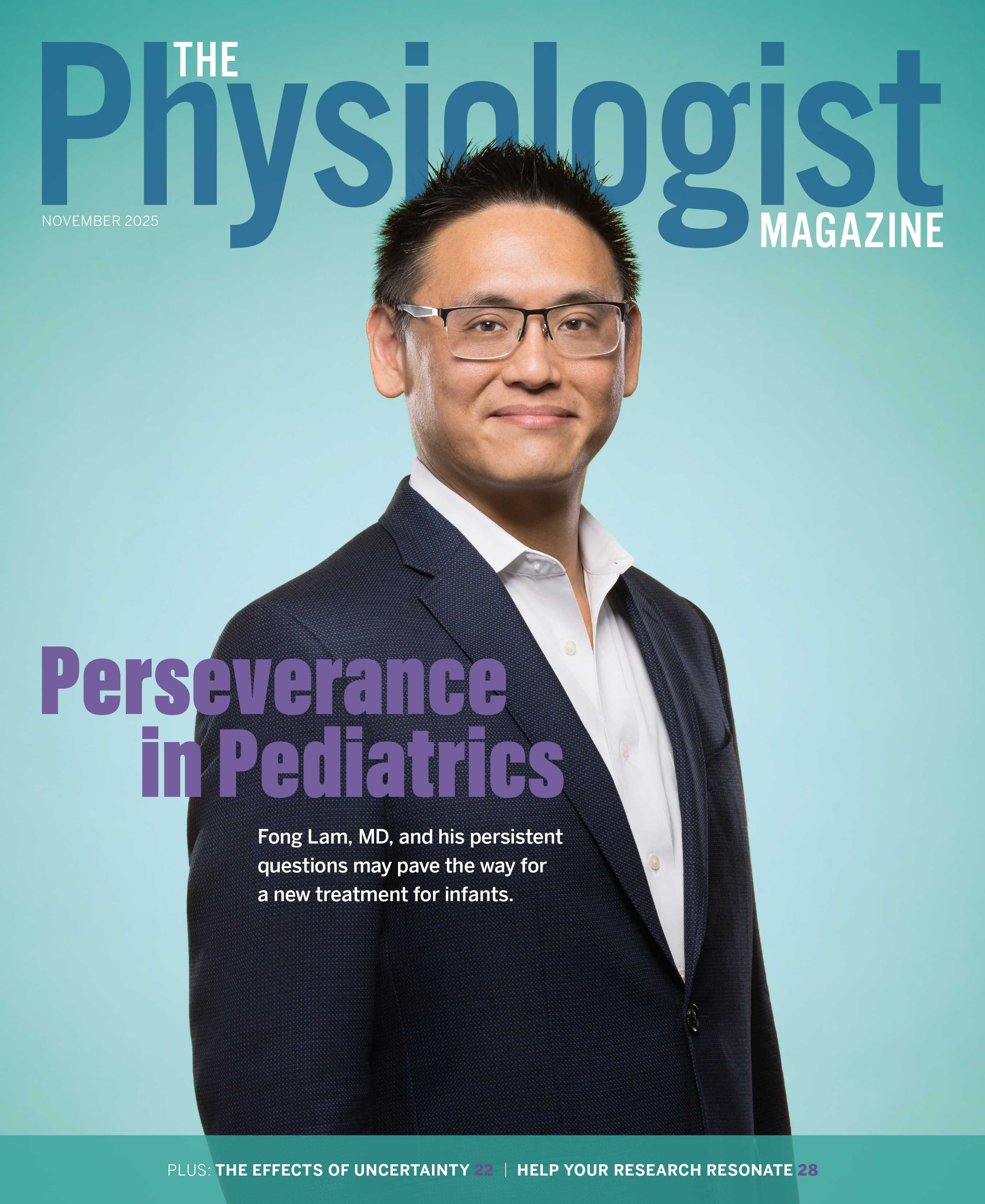‘The Now Generation’
Call them unique, call them insightful, call them
trailblazers … just don’t call them “Next Generation”
By Stacy Brooks
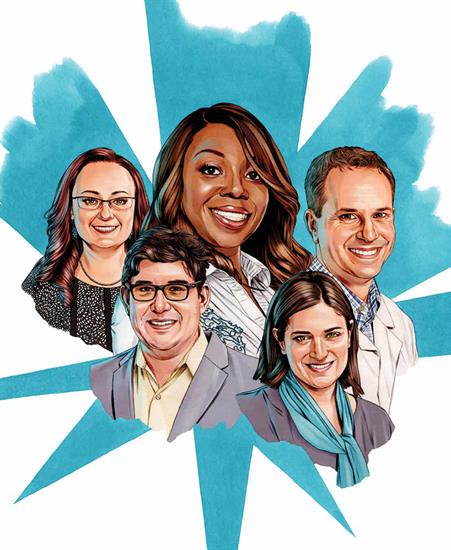 In June, five early-career APS members joined
The Physiologist Magazine’s Editor-in-Chief Stacy Brooks for a virtual roundtable. They shared their thoughts on the landscape for scientists climbing the ranks of academia in a research community that looks a lot different from what their mentors
experienced, their tips for trying to achieve work-life harmony, their favorite clichéd pieces of career advice and why we shouldn’t call them “the next generation.” Their conversation has been edited and condensed.
In June, five early-career APS members joined
The Physiologist Magazine’s Editor-in-Chief Stacy Brooks for a virtual roundtable. They shared their thoughts on the landscape for scientists climbing the ranks of academia in a research community that looks a lot different from what their mentors
experienced, their tips for trying to achieve work-life harmony, their favorite clichéd pieces of career advice and why we shouldn’t call them “the next generation.” Their conversation has been edited and condensed.
Research suggests that fewer than 20 percent of those who attain PhDs go on to tenure-track positions. Why do you think that is?
Anne Crecelius: Oftentimes, people are scared out of academia because they associate it only with a large-scale environment. Most of the training programs within academic research are at large, public institutions with NIH research project (R01) grants. Sometimes in this job market, these opportunities are thought to be the best—or the only—option. But academic research isn’t one-size-fits-all. Competitiveness and challenges are different throughout all of academia, and there are different ways to be engaged in research, whether you’re at a large R01 institution, a small liberal arts school or a mid-sized school.
Daria Ilatovskaya: Statistics can also be very deceiving. Tenure as a concept is changing very dramatically now. We should take that into consideration and maybe stop defining research by the concept of getting to a tenured position as the endpoint of the research or as the concept that defines us as researchers.
Miguel Zarate: Many U.S. cities are building biotech hubs where they can provide more appealing salaries for young trainees and require fewer qualifications. Academic jobs are demanding—you need to have publications, a history
of some type of funding and, on top of that, good networking skills—but biotech companies are looking more for experience. So I think it’s a new area for young trainees. We are interested in looking for other options that can actually
help us in improving work- life balance as well.
But what drives me to stay in academia is the passion for what we’re doing—the love of discovery of new methods or therapies to improve human health. I think love of what you’re
doing is essential in order to be successful in academia.
Is the traditional academic research model—the single principal investigator (PI) with a major grant, tenure and a lab supported by trainees—the framework we need today to advance science?
DI: Training is essential for everyone who wants to be in—and succeed in—science and research. I don’t think there is any other model that would provide the necessary training at any level, from undergrad to established faculty. Without training and development that we are getting using this model, there is no way of going further. Even if you’re at a smaller institution, you’re still the PI, you’re working with trainees that are working under you and you’re training them. You’re providing that training for whatever career path they will choose in the end. It’s all about the trainee-mentor relationship.
AC: I’m at a smaller institution. I run a lab, but though I don’t have staff or expectations for external funding, my institution provides support that funds small scale projects where I’m able to engage undergraduates in the discovery process. Some of those undergraduates might go on to a research career, but more often they’re going on to clinical careers. I think it’s still contributing to the enterprise because if we have clinicians who are aware of the research process and methods, that’s really what’s going to drive actual patient impact and the benefit to human health further. It’s important to appreciate the differences.
Shawn Bender: The training is really important, though I think the model is starting to change. When I was a trainee, the papers I was reading had one, two, three authors on them. So that was essentially one lab—a PI and a trainee or two. Now, you have 10 authors on a paper. The advancement of techniques and technologies, and the fact that we want to try to be as translational as possible, is forcing us to try different ways of looking at the problem that we’re investigating and collaborate more with other labs than PIs at research institutions may have done historically.
How has a changing research landscape shaped your career approach compared to your mentors?
Clintoria Williams: Some of my older mentors talk about how they were given opportunities based on potential. Nowadays, we have to have a proven track record before someone will present us with opportunities. I also think there is an expectation for graduate students to become the mini version of their mentor or their professors. But my philosophy is to love what you do, do what you love. So it’s important to develop your own niche through which you can contribute to a scientific team.
AC: I think there’s a need for nimbleness. It’s harder to be novel now than it was 50 years ago, and nothing is guaranteed anymore. All of us have probably seen giants in the field who we’ve looked up to not get that grant funded. Academic institutions are literally closing their doors. So the idea that “if I make it to this certain point, I can do my job and get my grants and have this lab and this legacy and everything will stay relatively the same for 50 years,” I don’t think exists anymore. It doesn’t exist anymore from a funding perspective or a higher-ed perspective.
SB: Collaboration really is expected now. The promotion and tenure process considers whether you are a good academic citizen. So a component of my job is “am I collaborating with people on campus?” That shouldn’t be a forced thing. Thankfully, at my institution there’s a lot of people in cardiovascular research, so it’s a much more organic thing that benefits everybody.
What is the truest “clichéd” piece of work advice you have received?
MZ: “Your publications are your currency.”
SB: “In science, all you have is your integrity.” I suppose when I first heard it, I thought “that’s oversimplified.” But the longer you’re in it, and the more you see people that make bad choices
and do things that are unethical and they get caught, you realize just how devastating it actually is and how difficult it is to come back from something like that, if they come back at all. Now I try to pass this
advice on to my trainees.
CW: “Perception is the co-pilot of reality.” Meaning that how you see yourself is how others see you. So it’s good to make sure that you always move in line with your values and your integrity.
What is the most challenging professional obstacle you’ve faced and how did you overcome it?
CW: Going from the day-to-day grind doing the experiments to now becoming what I consider a “lab-preneur.” I feel like we’re in the business of science now; we’re running small companies. It’s a steep learning curve for us all.
DI: Establishing my own lab and starting real life as an independent PI is way more complicated than I ever expected. And it is a definitely a big change from being a postdoc and not being responsible for people compared to becoming an actual person in charge. And that’s probably one of the biggest obstacles, changing your mindset from being a trainee to being an actual person in charge.
Being a PI, I now feel more like a manager or like a person in an administrative position. So that’s a different take on this career. People going into research should probably understand that it’s not going to be actual lab research you’re doing if you become a PI, but more of a managerial position. I think this has shifted over the last 15 or 20 years.
MZ: I am not an assistant professor yet, but I can tell you, from my perspective, the transition from graduate student to postdoc was a little challenging for me.
When I was working under my PI’s grant, I had a plan for experiments and step-by-step things I had to do to accomplish the goals of his grant. But when I came to university, I realized I had to do everything from scratch, starting from having the idea, to developing an important question, to putting it into a grant, creating the experimental design, doing the work, analyzing the data and using the conclusions to create more ideas. But I am thankful for the people here, my current boss for the guidance and training, and I feel more mature and ready for the next stage.
How do you find “work-life harmony” as you advance in your career?
SB: I’m a proud dad of four daughters under eight, and my wife and I both are professionals and work full-time. For me, even coming into an assistant professor position—I’m now five years in—I tried to be as intentional as I could early on about putting some boundaries in place to make sure that balance was maintained. And I think an important skill to learn is how to say no.
I’m, thankfully, in a wonderful place where my chair and my dean and other people there all expect you to have priorities outside of work. My legacy in life is not my grants and my papers. My legacy is my kids, then my trainees, the people in the relationships that I have; those are the priorities. I’ve tried to be as intentional as I can, as a dad and as a husband, to maintain that balance as best I can.
DI: I do not think that I have reached a work-life balance yet. And I don’t even have kids! Setting boundaries is definitely great, but sometimes it’s very hard to do.
MZ: Academia is really hard work, and the time that you have available for yourself or your family should be specifically for yourself and your family.
I know that it’s getting harder every day to be successful in academia, and I am really concerned that this can take a toll on young trainees. Universities should also focus on having programs to help us and to teach us how to craft not so much balance, but a harmony between work and life. It’s hard, but with great support I don’t think it’s impossible.
AC: I’m single and don’t have kids. I joke that I’ve started to say “I have to go pick up the kids” when I need to leave because people accept it and don’t think twice about you taking off. But then
a colleague said to me, “By saying that, you’re devaluing it. If you’re going to yoga class, say you’re going to yoga.” It really shouldn’t be any different to take care of yourself and your own
personal
well-being.
And that the notion that work and life have to be separate isn’t always true. For example, I’ve taught study abroad the past two summers. I went to work one day last summer riding a horse on the beaches in Spain. So that was definitely overlapping and that was awesome and that brought harmony to my life. Everyone has to figure out individually what works for them. It’s not one-size-fits-all.
CW: There are different models of work-life harmony. I think we have to be honest and share what those look like because sometimes it does feel like there’s a one-size-fits-all way to work where you’re expected to come
in early, leave late at night and come in on
the weekend. But if we’re not sharing that we have life outside of work, then we’re sending the message to younger researchers that this is how it’s supposed to be and that this is
the only way for you to become successful in this profession.
Do you feel like “next generation” is the right way to describe today’s early-career researchers? If not, why not?
SB: Am I the only one that thought of “Star Trek” when we heard “next generation?”
AC: People are in the early-career stage at a variety of age points, depending on their life circumstance. Any use of “young,” I think, should also be avoided because there are people who may be in early career who are two decades apart in age from one another.
DI: I think we should think about physiology as a community, independent of age and career stage. We’re all the future of physiology—undergrads, postdocs, graduate students, investigators and senior researchers together. Physiology
must be in perpetual development. And it’s all of us who are contributing to that development. ![]()
This article was originally published in the September 2019 issue of The Physiologist Magazine.
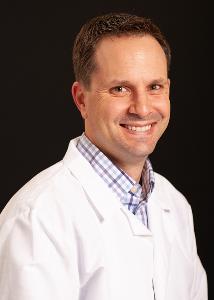 Shawn Bender, PhD, is an assistant professor in the department of biomedical sciences at the University of Missouri.
Shawn Bender, PhD, is an assistant professor in the department of biomedical sciences at the University of Missouri.
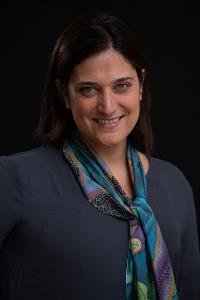 Anne Crecelius, PhD, is an associate professor at the University of Dayton.
Anne Crecelius, PhD, is an associate professor at the University of Dayton.
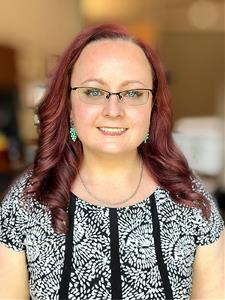 Daria Ilatovskaya, PhD, is an assistant professor at the Medical University of South Carolina in Charleston.
Daria Ilatovskaya, PhD, is an assistant professor at the Medical University of South Carolina in Charleston.
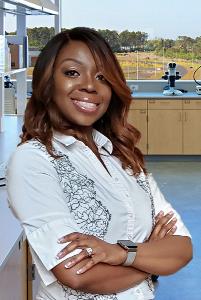 Clintoria Williams, PhD, is an assistant professor at Wright State University.
Clintoria Williams, PhD, is an assistant professor at Wright State University.
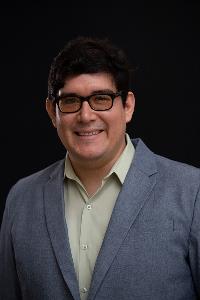 Miguel Zarate, PhD, DVM, is a second year postdoctoral fellow at the University of Colorado College of Medicine.
Miguel Zarate, PhD, DVM, is a second year postdoctoral fellow at the University of Colorado College of Medicine.The Physiologist Magazine
Read the Latest Issue
Don’t miss out on the latest topics in science and research.
Contact Us
For questions, comments or to share your story ideas, email us or call 301.634.7314.


